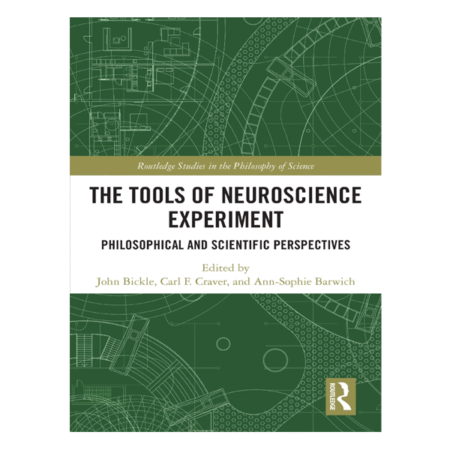Description
Book Description
This volume establishes the conceptual foundation for sustained investigation into tool development in neuroscience. Neuroscience relies on diverse and sophisticated experimental tools, and its ultimate explanatory target—our brains and hence the organ driving our behaviors—catapults the investigation of these research tools into a philosophical spotlight.
The chapters in this volume integrate the currently scattered work on tool development in neuroscience into the broader philosophy of science community. They also present an accessible compendium for neuroscientists interested in the broader theoretical dimensions of their experimental practices. The chapters are divided into five thematic sections. Section 1 discusses the development of revolutionary research tools across neuroscience’s history and argues to various conclusions concerning the relationship between new research tools and theory progress in neuroscience. Section 2 shows how a focus on research tools and their development in neuroscience transforms some traditional epistemological issues and questions about knowledge production in philosophy of science. Section 3 speaks to the most general questions about the way we characterize the nature of the portion of the world that this science addresses. Section 4 discusses hybrid research tools that integrate laboratory and computational methods in exciting new ways. Finally, Section 5 extends research on tool development to the related science of genetics.
The Tools of Neuroscience Experiment will be of interest to philosophers and philosophically minded scientists working at the intersection of philosophy and neuroscience.
Table of Contents
Foreword
Stuart Firestein
Editors’ Introduction
John Bickle, Carl F. Craver and Ann-Sophie Barwich
Section I: Research Tools in Relation to Theories
1. Tinkering in the Lab
John Bickle
2. Tools, experiments and theories: An examination of the role of experiment tools
Gregory Johnson
3. Science in practice in neuroscience: The Cincinnati water maze in the making
Nina A. Atanasova, Michael T. Williams and Charles V. Voorhees
4. Where molecular science meets perfumery: A behind-the-scenes look at SCAPE microscopy and its theoretical impact on current olfaction
Ann-Sophie Barwich and Lu Xu
5. A different role for tinkering: Brain fog, COVID-19, and the accidental nature of Neurobiological Theory Development
Valerie Gray Hardcastle and C. Matthew Stewart
Section II: Research Tools and Epistemology
6. Dissemination and adaptiveness as key variables in tools that fuel scientific revolutions
Alcino J. Silva
7. Towards an epistemology of intervention: Optogenetics and maker’s knowledge
Carl F. Craver
8. Triangulating tools in the messiness of cognitive neuroscience
Antonella Tramacere
9. Prediction, explanation and the “toolbox” problem
Marco J. Nathan
Section III: Research Tools, Integration, Circuits and Ontology
10. How do tools obstruct (and facilitate) integration in neuroscience?
David J. Colaço
11. Understanding brain circuits: do new experimental tools need to address new concepts?
David Parker
12. Cognitive ontologies, task ontologies and explanation in cognitive neuroscience
Daniel Burnston
Section IV: Tools and Integrative Pluralism
13. “It takes two to make a thing go right”: The coevolution of technological and mathematical tools in neuroscience
Luis Favela
14. Hybrid brains: Interfacing living neurons and circuits with computational models
Astrid Prinz
Section V: Tool Use and Development Beyond Neuroscience
15. Beyond actual difference making: Causal selections in genetics
Janella Baxter









Reviews
There are no reviews yet.